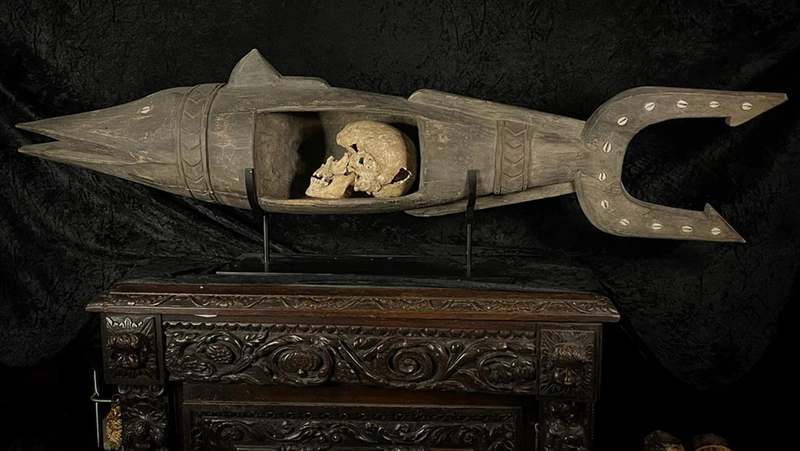The United Kingdom is facing a growing wave of grave desecrations and body snatching. Driven by the social media trade in skulls, bones, and leather products, taking advantage of a legal loophole, reports The Guardian.
Historically, this market was dominated by ancient skulls for medical use and former museum exhibits. But recently there has been a surge in the sale of skulls described as “archaeological.” Whose appearance suggests they were excavated or exhumed from coffins.
“People are breaking into mausoleums and taking remains to sell to people who think this is gothic, quaint, or supernatural,” said Dame Sue Black, a renowned UK forensic scientist. “It’s horrifying. That’s why we say ‘Rest in peace.’ No one expects their body to be dug up and sold,” she added.
The existence of a legal loophole is the main driver of these practices. Experts point out that the lack of regulation means that much of the trade in skulls and bones falls into a gray area.
In the United Kingdom, desecrating a grave is a crime, but remains are not technically property. So legally they cannot be possessed or stolen. This means that possessing or selling historical human remains does not automatically constitute a crime. Even if they were illegally exhumed.
Selling Skulls on Social Media
In response to this phenomenon, The Guardian conducted a test with images of 10 skulls for sale on social media to identify possible illegally exhumed remains. The analysis was evaluated by three forensic experts.
After their observations, the experts determined that while some skulls showed evidence of having been used for anatomy teaching. Others showed signs of dirt and traces of human tissue that suggested they came from recent exhumations.
“Social media has completely changed the market. It’s not illegal, and that’s the problem,” said Dr. Trish Biers of the Department of Anthropology at the University of Cambridge. She added that there has been a substantial increase in such sales in the United Kingdom in recent years. Prices for skulls displayed on social media ranged from $1,000 to $1,500.
In the past five years, the British Association for Biological Anthropology and Osteoarchaeology has blocked more than 200 sales of human remains. At auction houses, brick-and-mortar stores, and online due to suspicions about their provenance.
While these practices continue, the Human Tissue Authority, the body responsible for licensing and overseeing the handling of tissues and organs in the country. It has stated that any activity involving human parts must be guided by the principles of “consent, dignity, quality, honesty, and openness.”
A spokesperson for the Department for Culture, Media, and Sport stated: “All human remains must be treated with respect and dignity. We hope that auction houses will examine their activities. And that those who deal in human remains will carefully consider the ethical implications of this activity. Which, understandably, many find deeply disturbing.”
With information from RT.com News
- The Mystery Behind Chernobyl’s Blue Dogs Revealed - 9 de December de 2025
- Expedition “My Hands for Cuba” Exchanges Perspectives with Holguin Youth - 9 de December de 2025
- CDR’s Coordinate Donations for Holguin - 9 de December de 2025

